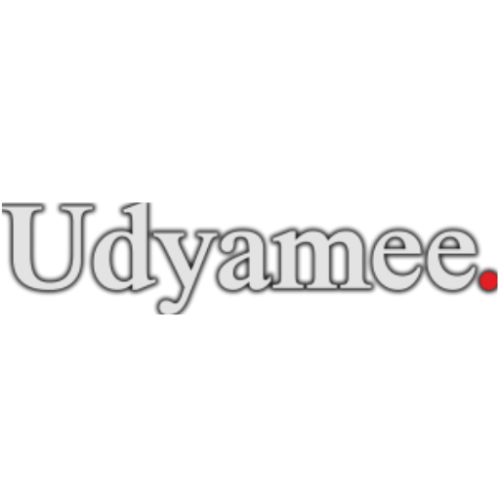Introduction
The Railway Workshop Audit conducted by the Comptroller and Auditor General (CAG) of India, as part of its Compliance Audit Report No. 2 of 2025, has brought to light severe inefficiencies in the Mancheswar Carriage Repair Workshop (CRW/MCS) under the East Coast Railway (ECoR). This audit also evaluated the long-delayed infrastructure expansion for the 5th and 6th rail lines between Chhatrapati Shivaji Maharaj Terminus (CSMT) and Kurla in Mumbai.
These findings highlight the urgent need for operational reforms within Indian Railways, particularly in project planning, budgeting, inventory management, and quality control.
Railway Workshop Audit Reveals POH Underperformance
The Railway Workshop Audit pointed out that despite significant augmentation to increase the Periodical Overhauling (POH) capacity of CRW/MCS to 150 coaches per month, actual output between 2016 and 2023 remained below expectations, ranging from just 86 to 113 coaches.
The report emphasized that 52.1% of the 3,402 coaches overhauled between 2020–2023 took longer than the prescribed 15–20 days, resulting in an estimated revenue loss of ₹7.69 crore due to increased turnaround time.
Post-Overhaul Failures Raise Safety Concerns
The Railway Workshop Audit also raised serious concerns regarding the standard of maintenance practices followed at the facility. Over 131 coaches failed within 100 days of POH, attributed to substandard workmanship and improper part replacements. A particularly alarming case involved Coach No. 184681, where second-hand rubber springs were used instead of new ones. The non-reporting of 117 such failures led to an additional earning loss of ₹40.07 lakh.
Data Discrepancies and Delayed POH Scheduling
The audit revealed inconsistencies in coach holding data between ICMS (Integrated Coaching Management System), depot logs, and zonal headquarters, due to lack of real-time updates. Over 41% of coaches were sent for POH beyond the stipulated three-month delay period, undermining both safety and scheduling efficiency.
Budgeting Gaps and Questionable Investments
The Railway Workshop Audit observed significant anomalies in budgeting practices. The workshop’s Budget Estimates (BE) exceeded actual needs by ₹198.11 crore between 2020–2023. The BEs were not aligned with projected output or the prescribed unit costs, leading to over-projection margins of up to 53%.
Additionally, ₹181.78 crore was invested in six expansion projects despite underutilization of existing capacity. Many projects showed little to no progress, were poorly justified, or lacked complete feasibility assessments.
Machinery Lapses and Procurement Delays
The audit identified four high-value machines—together worth ₹4.15 crore—that remained non-operational for extended periods. This includes a hydraulic plate bending machine out of service since 2014. Maintenance protocols were poorly followed, and delayed repair approvals compounded the problem.
Furthermore, procurement delays led to persistent shortages in essential stock and non-stock items. Safety-critical components were often unavailable, directly impacting the workshop’s operational reliability.
Inadequate Monitoring and Reporting Systems
The Workshop Information System (WISE), meant to track overhaul cycles and inventory, was inconsistently updated. Mismatches between WISE records and manual data created inaccuracies in the workshop’s performance reporting. Coaching depots also failed to comply with mandatory CMM data uploads, weakening visibility across systems.
Recommendations from the Railway Workshop Audit
The CAG’s Railway Workshop Audit issued several recommendations for reform:
-
Adopt real-time data entry for coach tracking and POH planning
-
Align Budget Estimates with codal provisions based on unit cost and realistic output
-
Strengthen reporting and analysis of post-POH failures
-
Avoid unjustified capacity augmentation without detailed feasibility
-
Improve procurement timelines and inventory management
-
Enhance quality control processes through consistent audits
-
Ensure proper repair, commissioning, and maintenance of high-value machinery
The Broader Infrastructure Context: CSMT-Kurla Line Delays
In addition to the workshop audit, the report reviewed the CSMT-Kurla 5th and 6th line project, sanctioned in 2009–10. This project, aimed at separating suburban and non-suburban traffic, has been severely delayed due to issues in land acquisition, rehabilitation of project-affected persons (PAPs), and misaligned planning.
The audit cited flaws in project estimation, delayed approvals, encroachment issues, and idle contractor materials worth ₹7.06 crore, reflecting systemic inefficiencies in project execution.
Conclusion: A Wake-Up Call for Indian Railways
This Railway Workshop Audit is a powerful reminder of the need for better planning, coordination, and accountability in public infrastructure projects. The findings underline the importance of accurate budgeting, efficient maintenance operations, robust data systems, and quality oversight.
For stakeholders across the logistics, transport, and MSME sectors, these inefficiencies can have far-reaching consequences on service delivery and reliability. The Ministry of Railways must act decisively on these recommendations to restore confidence and improve performance.
Note: This article is a summarized interpretation of the official report published by the Comptroller and Auditor General of India titled “Indian Railways Audit: Mancheswar Workshop & CSMT-Kurla Line”.
For the full report, visit Comptroller and Auditor General of India.
Image Credits : SWARAJYA
🔗 For more articles on AI trends and digital innovation, visit: Udyamee Magazine









